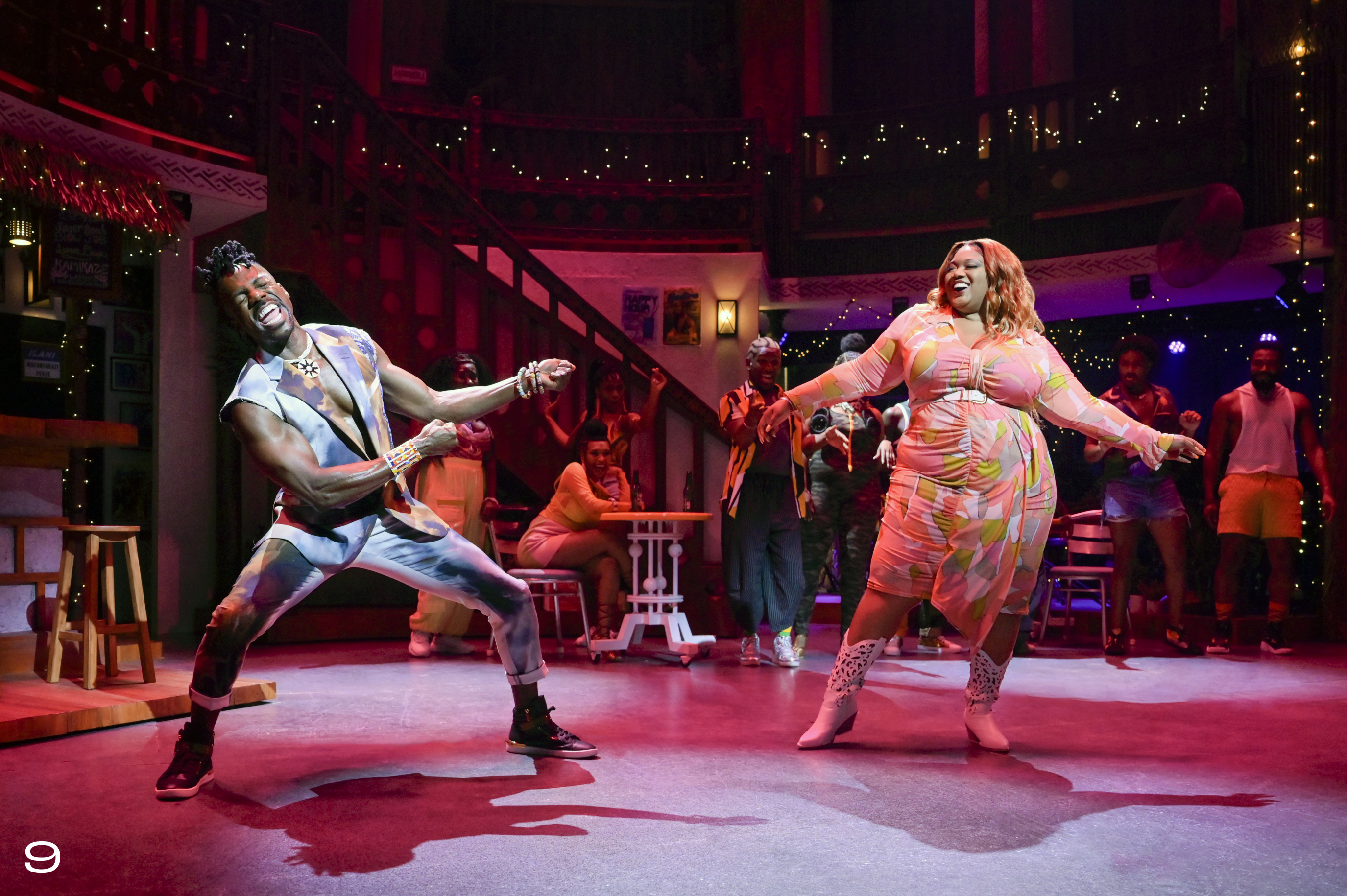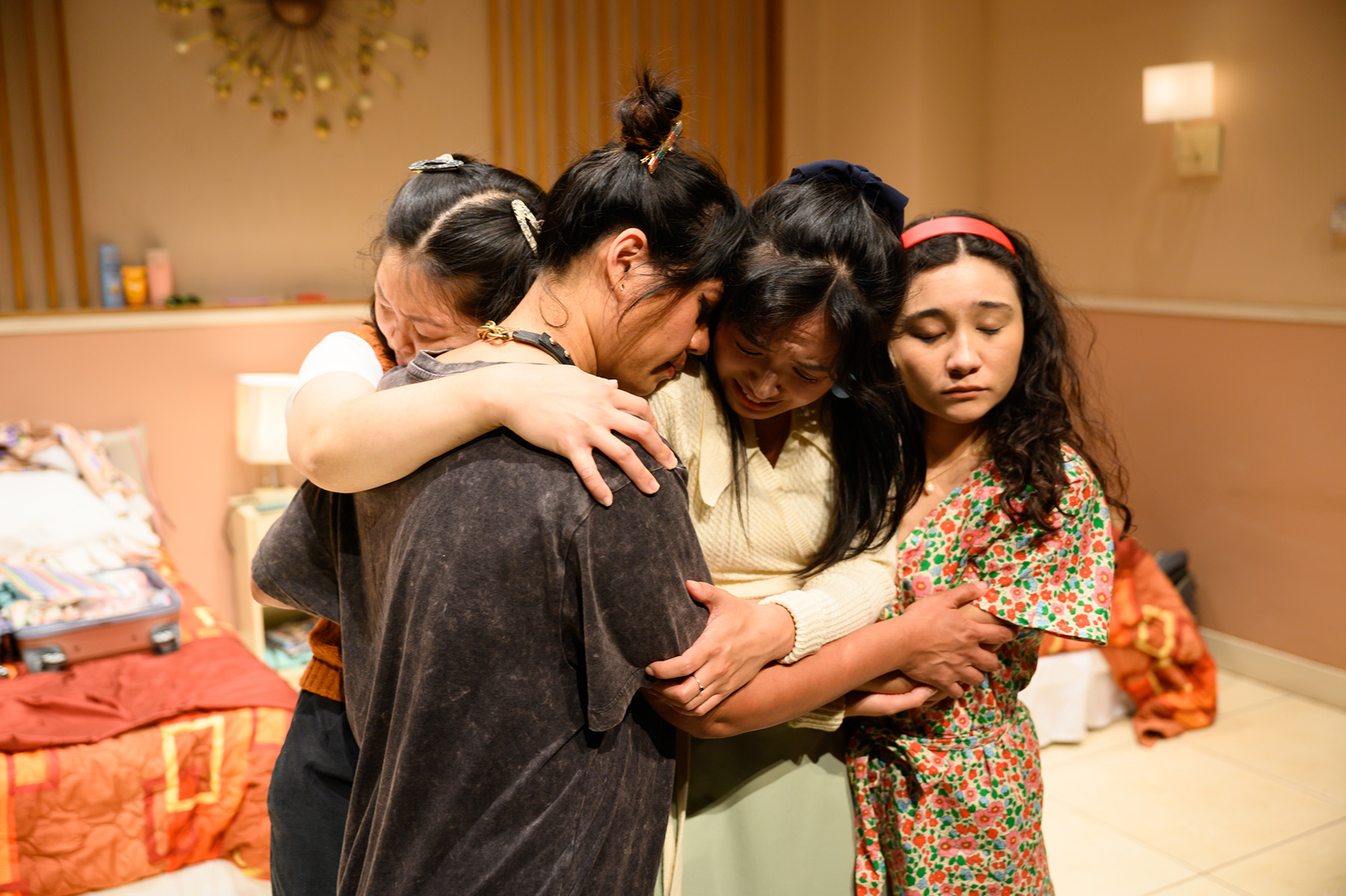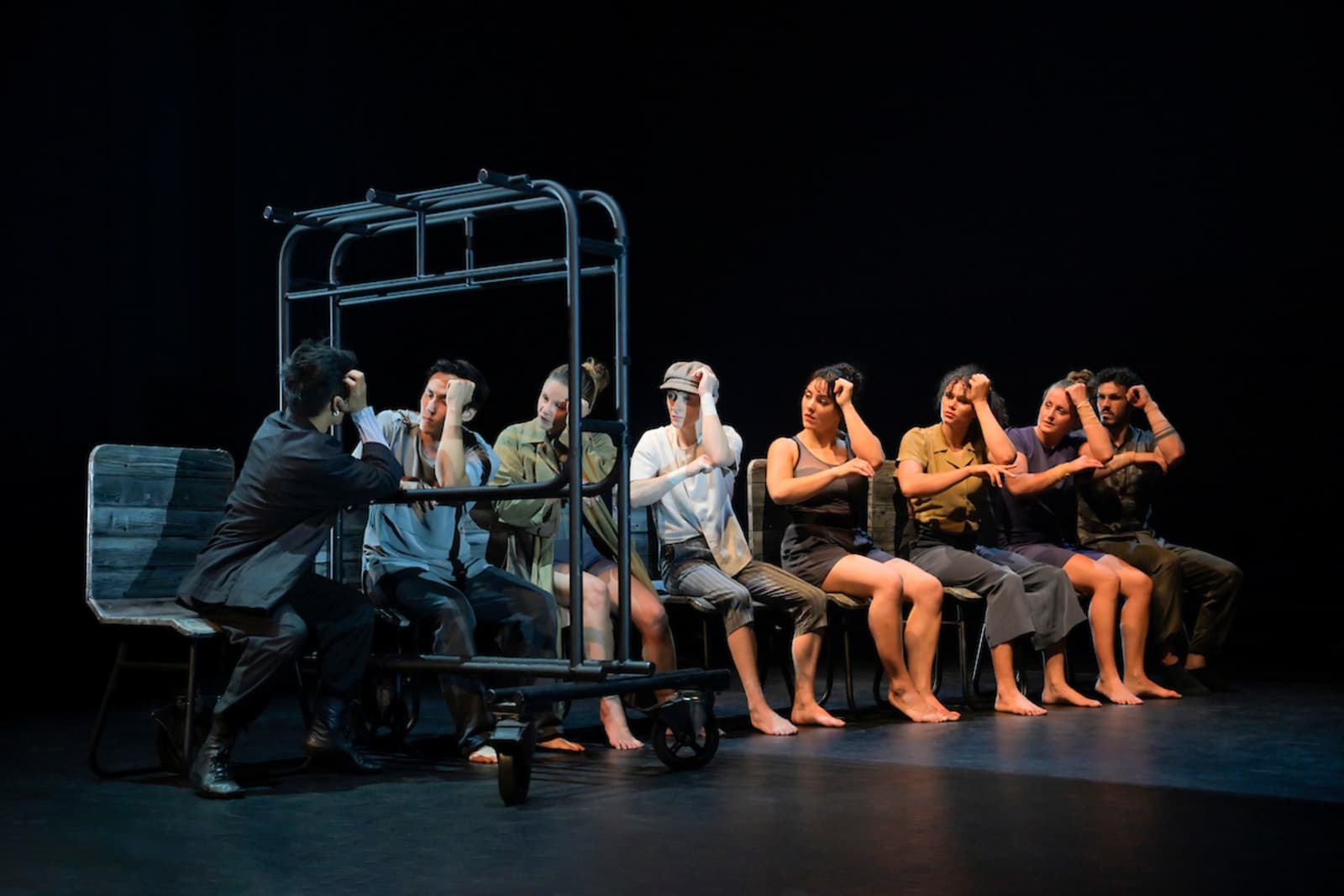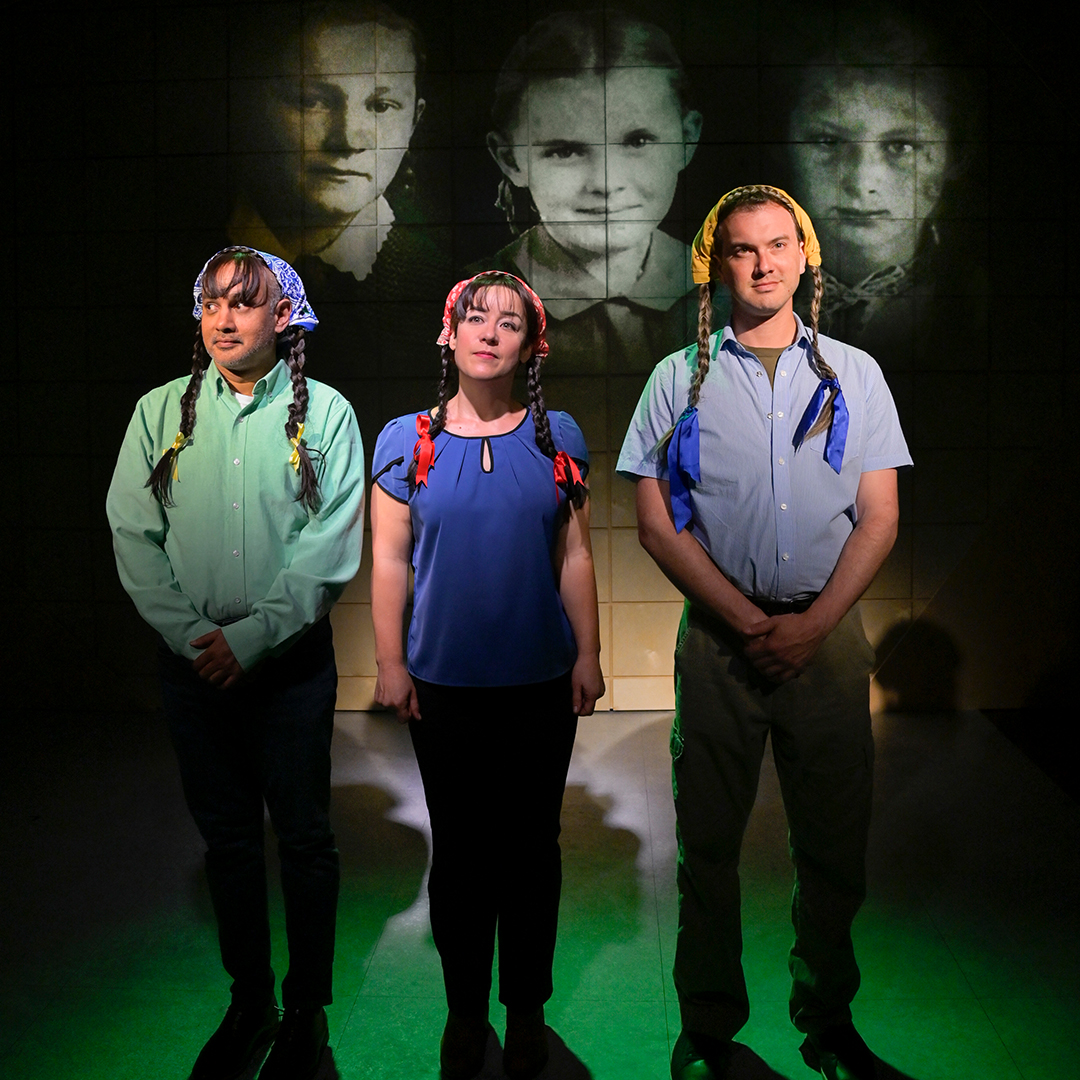I know.
I don't do this anymore. I got tired of the effort it took to produce even a modest-length "review" of the plays I saw, when very few people were even reading the results. I felt bad because I knew a few people, at least, had come to expect my posts, and in truth, I missed writing them.
And then came The Plague, and the Master of the Revels closed all the theaters. In fairness, I had stopped blogging about theater well before COVID-19 was even a twinkle in some Chinese bat's eye. But it soon became clear that not only was my attempt at "Too Much Theater" impossible, but we would all get to experience "Not Nearly Enough Theater" for far too long.
And now things are opening up again, and we're seeing shows in person (the less said about the lessons we learned with online performances, the better, though maybe I'll blog about that someday). But that's not what brought me back here. It was rereading a play.
Searching for a Reading
Last summer, when it appeared theaters were going to get to reopen for real, and we were all vaccinated and excited about life again, my wife and I got to be guinea pigs. A few years earlier at the Shotgun Players' annual gala we had bought the rights to host a private, staged reading, and the reading itself was scheduled for late April of 2020. Obviously, that didn't happen. We had planned to use the beautiful set that Nina Ball had designed for Shotgun's production of Henry V that was supposed to open right as COVID shutdowns hit--they were in tech rehearsals, and never got to open. It was terribly sad for the artists, of course, but I also took it personally as I'd been allowed to sit in on quite a number of their rehearsals, and really felt like a small part of the gang. Plus I really wanted to use that set!
My thinking had been that we ought to do a reading that would take advantage of Nina's brilliant little interpretation of Shakespeare's Globe Theater inside the Ashby Stage, and the play that came to mind was Bill Cain's Equivocation. We'd seen its world premiere at Ashland in 2009 and also when it played at Marin Theatre Company the following year. Terrific play, partly taking place in the Globe: Perfect!
But as the pandemic wore on, that play felt less pertinent in the moment, and we ultimately settled on a reading of Lauren Gunderson's wonderful play, The Book of Will. We had seen it twice in Ashland in 2018, and had been looking forward to it playing at TheatreWorks Silicon Valley in the summer of 2020 before it got canceled. So it was both a chance to give that play a deserved shot in the Bay Area, and also a celebration of the role theater plays in our hearts during difficult times. It was kind of the ideal show to use to reopen the theater after more than a year away, and it, too, is largely set on the stage of the Globe.
So that's all good, but also not the reason I'm writing this.
Old Play, New Context
When we were planning the reading of Equivocation for 2020, I read through the script for the first time in several years. (I have two copies: the OSF script used for the premiere and also the published version--I really like this play!) The play revolves around the premise that in 1605, while Shakespeare was working on his new play about King Lear, the government tries to hire him to write a new "history" play, but this time about current history, specifically the Gunpowder Plot.
This leaves our playwright in a quandary. The king is, after all, the patron of his theater company, and with theaters having been closed by outbreaks of the plague for several years, a commissioned work would be welcome revenue. But the company is divided over whether to accept the task. The play will have to delicately balance the official government line with portrayals of the conspirators and their views. The playwright struggles both with his company and with the government, all while the story of the Plot is still coming to light. Art, truth, and expediency all seem to conflict. Can he write a play that is true and still get it approved? Are we being manipulated? Is he being manipulated?
A Little History Lesson: A House Divided
The years 1605-6 were busy ones in England, but really, for several centuries the whole country had been in nearly constant upheaval. Must of that period is familiar to theater-goers through Shakespeare's "history plays" that cover the period from the early 1300s to the mid-1500s. Throughout those years, England was wracked by questions of succession, usurpation, and the legitimacy of its kings. Even when the Tudor era put an end to the Wars of the Roses, religion came to the fore, and for several generations the country ping-ponged between Catholicism and the Church of England.
Despite a fair degree of adherence to actual history, Shakespeare's history plays both bend history to fit dramatic needs, and also carefully select themes that will pass the approval of his contemporary censors. Not only does Shakespeare have to craft his plays so his audience will enjoy them, but he also needs to make sure the current monarchs will permit the plays to go on.
With the death of Elizabeth I in 1603 and the succession of James I (brokered by Sir Robert Cecil, the Secretary of State), Protestantism seemed well established in England, though there remained devoted, mostly closeted, Catholics (and indeed, Shakespeare may have been one). Jesuit priests were officially banned from the country, for example. And the Protestant King James was not universally loved, both because he was Scottish and because he was deemed a bit of a lightweight in the ruling department, perhaps more interested in the trappings of the office than the job itself. So in November of 1605, a group of English Catholics conspired to blow up the House of Lords (and the king) during the opening of Parliament, an event known as the Gunpowder Plot. Though the plot failed, the event was used to justify further restrictions on Catholics, and to this day the anniversary is commemorated as Bonfire Night.
So, then: a deeply divided nation, tenuous leadership, and a scandalous attempt to overthrow the government. And even in the aftermath, conspiracy theories that agents of the crown might have aided the plot, knowing they could exploit the event for political gain.
The Play, Then and Now
Cain originally wrote Equivocation in the aftermath of 9/11 and the ongoing Iraq War, and the themes of government coercion and propaganda, lies, torture, and conspiracy theories all resonated strongly. Exploiting a national tragedy to unite divisive factions, even if the story doesn't quite ring true, was a big theme of the play.
The parallels with 9/11 were quite clear at the time, with a big, violent event used to pull the nation and the world together, with threats of further terror used to justify curtailing travel, increasing surveillance, and eventually, invading foreign countries. One can easily equate the incidents and the responses to them--that was certainly palpable when I saw the play in 2009-10.
So in late 2019 I re-read the play to make sure it would still feel timely a decade later. And boy, was I surprised to find that it resonated in whole new ways! The play hadn't changed, but the social context for the audience was very different.
In pre-pandemic America, the notion that the government might be trying to rewrite (or even, pre-write) history was all too credible in the land of "alternative facts" and "fake news". An unqualified new head of state, pulling the levers of the Deep State, manipulating stories and perhaps even staging them--all terribly familiar in the Time of Trump. Cain's exploration of the role of Truth is even more fascinating that it had been a decade earlier, and honestly, the ambivalence of the answers are even more poignant in the current environment.
It was truly eye-opening to see how a play that had been so rich and timely when it first came out was in many ways even more on-point in a dramatically different world ten years down the road.
And that was all before January 6, 2021. I mean, how much more pertinent can we get? An actual insurrection attempting to overturn the results of a presidential election is right up there with putting gunpowder in a tunnel under the Parliament. And the spin doctors casting doubt on everything and everyone--motives, actions, words--everything is up for grabs.
All I can say is that I continue to be amazed at how prescient Cain was in his writing. But really what that means is that he wrote something really good: a piece of work so deep and complex and real that it provides a framework for gaining insights into future conditions that change over time.
Nerdy Shakespeare Notes
Aside from the deep issues addressed in Equivocation, there is a whole layer of "inside baseball" material for the Shakespeare enthusiast. On top of his background as a Jesuit, playwright Cain has strong credentials from his work with Shakespeare's plays: founder and artistic director of the Boston Shakespeare Company, he has also directed Shakespeare plays from coast to coast. So this play is full of playful nuggets that appeal to Shakespeare nerds.
In addition to the delightful digs about Shakespeare's acting ability and his penchant for killing off his characters (and particularly, kings), Cain intertwines history with his own story in at least three different ways. One obvious one is the character of his daughter, Judith. There is no evidence of them having anything like the relationship depicted here. A second is the family rivalry with the Cecils. Although scholars have long linked Robert Cecil's father, William, to the character Polonius in Hamlet, I believe Cain's linkage of the younger Cecil to the Scottish Play is entirely novel. In any case, the snarky digs and clever creations make Equivocation a treasure trove for a Shakespeare nerd.
Why Do We Do This?
I will admit that a few bits of the play seem less timely, or at least less urgent, than they did before. The debate over torture and its use and abuse as a tool of investigation is no longer front-page news, for example. But the bigger dynamics at play--government versus private interests, art as a tool for finding (or obscuring) truth, artistic integrity, fathers and daughters, entrenched dynasties--all still work delightfully.
And ultimately, this is what all literature, all stories, all art should be about--holding up a mirror to our current selves so that we can investigate who we are and what we think, feel, and believe. And that's not a one-time offer. Revisiting a book or a play or an artwork isn't just a way to reinforce something already known or have the same experience again. To paraphrase Heraclitus, you can't step into the same story twice. It's reopening the learning. It might reinforce, but it might replace or adjust or augment what came before. There is always value in revisiting stories.
My first viewing of Equivocation was a milestone for me--both the play and the production were eye-opening, and it's been a touchstone subsequently as I think about plays and the theater. Reading it, and hopefully seeing it again lets me both re-evaluate what I recall I got from it the first time and experience new reactions as well. Even if it's the same story, I'm not the same person, and this is not the same world, and there will be new thoughts to think.
Of course, not every piece of art deserves all this much attention. Part of the ongoing reimagining of theater today deals with pruning some works from the canon and introducing new and different ones. I'm all for new works and new voices, but it's important to remember why some of the classics are genuinely classic, and why some modern works are better than others. Some repay ongoing study with rich rewards, and I'm pleased to find that Equivocation seems to fall in that category.



